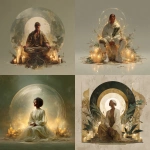Explore the Best AI Image Gallery

Blockchain Beyond Finance: Unleashing Creative Potential
The world of finance has witnessed a seismic shift with the advent of blockchain technology. However, its influence extends far beyond traditional monetary systems, poised to revolutionize various industries, including the creative sector. From digital art ownership to copyright protection, blockchains decentralized and transparent nature offers a plethora of opportunities for artists, musicians, writers, and innovators to reshape their creative landscape.
Reshaping Digital Ownership: NFTs and Beyond
Non-fungible tokens (NFTs) have emerged as a groundbreaking application of blockchain in the creative realm. These unique digital assets represent ownership of specific creations, be it artwork, music, or even virtual experiences. By tokenizing their work on the blockchain, artists can establish verifiable provenance, ensuring authenticity and combating counterfeiting. This empowers creators to directly connect with their audience, bypassing traditional gatekeepers and fostering a more equitable distribution of value.
Copyright Protection: A Transparent Solution
One of the persistent challenges faced by creatives is safeguarding their intellectual property rights. Blockchain offers a robust solution by providing an immutable record of ownership and creation dates. Smart contracts, self-executing agreements embedded within the blockchain, can automatically enforce copyright terms, ensuring fair compensation for creators whenever their work is used or reproduced. This transparency and automation can significantly reduce piracy and empower artists to retain control over their creations.
Collaborative Creativity: New Frontiers in Innovation
Blockchains decentralized nature fosters collaboration and opens up exciting avenues for collective creativity. Imagine a scenario where musicians, writers, and visual artists can seamlessly contribute to a shared project, with each participant receiving due recognition and compensation based on their contributions. This collaborative framework can lead to innovative breakthroughs, blurring traditional artistic boundaries and fostering a more inclusive creative ecosystem.
Ethical Considerations: Navigating Uncharted Territory
While blockchain offers immense potential for the creative industry, it also raises important ethical considerations. The decentralization of power can lead to unforeseen consequences, such as the emergence of monopolies or the spread of misinformation. It is crucial to ensure that blockchain implementations in the creative sector are transparent, accountable, and promote inclusivity. Addressing issues like data privacy, algorithmic bias, and equitable access to technology will be essential for harnessing the full potential of blockchain while mitigating its potential risks.
The Future of Creativity: A Blockchain-Powered Landscape
As blockchain technology matures, we can anticipate a future where it becomes an integral part of the creative process. From decentralized art marketplaces to immersive virtual experiences powered by NFTs, blockchain will continue to redefine how creators produce, distribute, and engage with their audience. Embracing this transformative technology while addressing its ethical implications will be crucial for shaping a more equitable, innovative, and inclusive creative landscape.





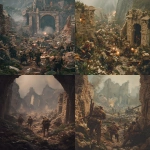

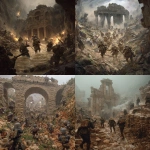



](https://images.ai-img.art/thumbnails/150/c2241c1eabdcb7b9a98be19a7e8d850b6cffe0e0c91c1ccda8dd807e2a96b187.webp)

](https://images.ai-img.art/thumbnails/150/47d44e177f427ea6b32f96ea225db96c5158850a0cf01d1bad93e45dd4594430.webp)

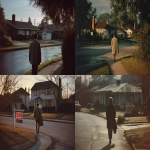

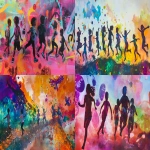
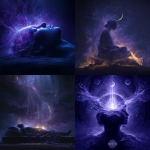
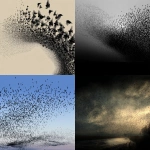




](https://images.ai-img.art/thumbnails/150/c48401bc3fad7ff7f2dbd37b894d3f53cb42d5072dfacb8bfdcdeeef28a29b04.webp)


](https://images.ai-img.art/thumbnails/150/09ccae5e68e2b6da6b5da87ef69f7eb09e80c99ca39ba886c5c3773cbb3b89ba.webp)




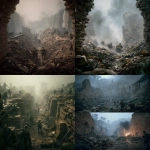








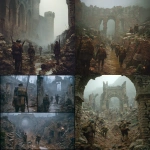

](https://images.ai-img.art/thumbnails/150/44b76c49c47b4c47f13eac7883c63827d3f89aa77fe64ce0cbecb9d3ce434499.webp)




